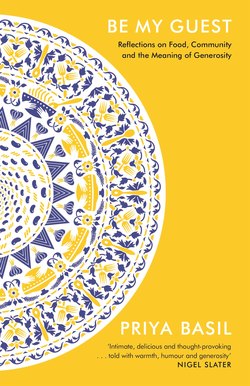Отрывок из книги
Also by Priya Basil
Strangers on the 16:02The Obscure Logic of the HeartIshq and Mushq
.....
No wonder different societies claim the same food as their definitive, national dish. Hummus in the Middle East may well be the most contested case in point. Fed up of the endless, inconclusive debates about the true origins of this popular chickpea dip, a group of Lebanese hummus-aficionados decided to settle the matter once and for all by setting the record for making the largest tub of hummus ever in the hope that the feat would irrevocably associate hummus with Lebanon above all. The idea of consolidating their ur-hummus credentials by producing such an excess is fitting in the context of the famously profuse Arab hospitality, summed up in the half-joking warning to guests: you’ll need to fast for two days before and two days after eating in an Arab household. A year after the Lebanese set their hummus record, the title was taken by a group in Israel who filled a satellite dish with four tonnes of the dip. Months later the Lebanese managed to top that and reclaim the Guinness World Record title. The dispute continues, a mild incarnation of the greater, more intractable regional conflict. I should probably refrain from dipping my finger into such loaded contests about the humble chickpea, but I adore hummus, and my favourite version is one made by a Palestinian friend – without a trace of garlic. And, of course, she is certain hummus was invented in her village.
IN THE EXTENDED FAMILY household in Nairobi where Mumji lived with Papaji during the first years of marriage, there was culinary competition of a very different sort. Food was complimented as people never could be. Papaji’s family were a reticent bunch. Their approval, if it came at all, took the form of a cheeky pinch or punch. Fortunately, appreciation of edibles did not need to be expressed in words, it could be conveyed in sighs of satisfaction and second helpings and – from the ladies – sidelong requests for recipes. The latter were never obliged: Mumji evolved a repertoire of tactics for rebuffing them. ‘Forget the recipe! I’ll just make it for you again,’ she promised her preferred people, while those she liked less, but dared not risk alienating were told, ‘There is no recipe, you just have to watch me make it.’ Needless to say, the occasion would never arise. Even in the communal family kitchen she contrived to guard her methods from her in-laws. If she was ever cornered into explaining how to make a dish, she deliberately left out key ingredients or crucial steps. Even – especially – with her own daughter, my mother. Recently Mum asked Mumji to show her how to make gulab jamuns – small, deep-fried balls of milk solids soaked in sugar syrup. ‘You can buy the ready mix at the Indian shop,’ Mumji said. ‘Have you ever done that?’ Mum wondered. ‘Of course not!’ Mumji replied, and changed the subject.
.....
